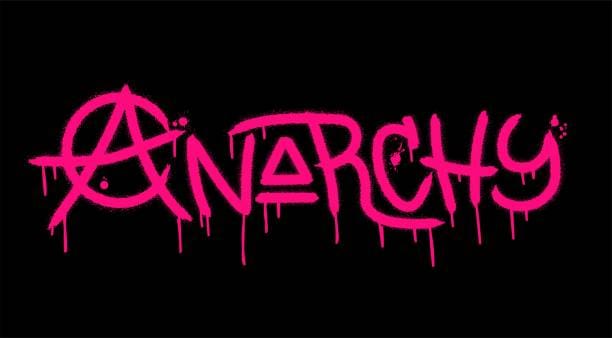Medical School Made Me An Anarchist

Prior to medical school, I had not fully realized how societal structures of power create the conditions for ongoing cycles of human suffering.
As a person of European decent, I grew-up being isolated from these conversations and realizations due to whiteness being upheld as a societal norm that I inherently benefited from since birth. The underpinnings of these power structures stem from both current and historical legacies of white supremacy, imperialism, and colonialism which all seeks domination over those that are not white, Christian, cis-gender, heterosexual, or male.
Many institutions whether the U.S. government or those of medicine, academia, scientific research and many others have all been mired in this legacy of institutional white supremacy that has existed since the colonization of the Americas by Europeans.
In medical school, I began seeing with glaring clarity how my black and brown colleagues were treated differently than fellow white colleagues; yes, even in Naturopathic Medical School. I also saw from the very start how utterly ableist medical education is as someone that suffers from a chronic health condition myself.
I, as well as many other colleagues live with the moral injury of a system that allows narcissistic abusers to maintain leadership roles within their institutions. Early in the 20th century, the entire academic structure of medical education was created by abusive and narcissistic white male Physicians often perpetually high on cocaine so they could meet their own inhumane standards and ideals of how a Physician should practice. This involved unwavering dedication to medicine at the expense of their own health and well-being.
Medicine as a profession is not only mired in scandals of abuse of its own trainees, it has a historical precedent of patient abuse that remains to this day. The entire field of Obstetrics and Gynecology was started from the exceedingly painful and anguishing experiments performed on black women without any anesthesia. There's also the Tuskegee experiments where black men were coerced into a research study of syphilis, a sexually transmitted infection; these men were never given proper informed consent regarding the true nature of the research nor were they given proper treatment for the infection even after treatment became available in the late 1940s. Both of these stories are documented in the book Medical Apartheid: The Dark History of Medical Experimentation on Black Americans from Colonial Times to the Present by Harriet A. Washington.
Additionally, the 1980's HIV/AIDS epidemic is yet another tale of widespread medical and governmental negligence of a community that was seen as sub-human and not worthy of saving; thousands of gay and bisexual men and their partners died unnecessarily. Today, gender and sexually affirming care is being banned by far right state legislatures and dominant medical institutions are simply complying.
By acknowledging this history, one can easily see how medicine as a field intersects with these structures of power and domination. For those interested, I encourage you to further research these histories of which I presented above to provide greater context.
Personally, as I have explored these histories in conjunction with my own experience parsing the world of medical education, I started to question these power-hungry authoritarian structures that are imbedded into the fabric of Western society. Initially, I did not have language for it but as I researched, I discovered the world of anarchist thought and philosophy; even asking myself what medicine would look like under an anarchist paradigm.
Anarchy itself is a word that means without hierarchy. Anarchist philosophers ask themselves how society would benefit from more horizontal and egalitarian structures than top-down hierarchical structures which is what we have at present.
Despite propaganda that perpetuates anarchy as a system of chaos, violence, and lawlessness; anarchy upholds structuring society as anti-authoritarian, anti-white supremacy, anti-colonialist, anti-hierarchical and pro-egalitarian, pro-direct action, pro-mutual aid, pro-bodily autonomy, and pro-human liberation. Anarchy also prioritizes voluntary and informed association with other human beings and organizations while seeking to decentralize power structures away from a select few. Keep in mind, anarchy does not mean an absence of structure or organization; it does however mean without unfettered hierarchy, power, and domination.
I would argue given everything happening within the United States and around the globe, anarchists have the moral high ground. The moment you truly acknowledge the violence perpetuated by our existing institutions of power, is the same moment you begin acknowledging that anarchy doesn't sound so crazy, it actually sounds liberating to live in a society where all human beings would be free.
As a long time Dharmic practitioner, I strive for all living beings to be free from suffering.
So, what does this mean for me as a soon-to-be Naturopathic Doctor who deeply resonates with anarchist thought and philosophy?
Stay tuned for part two as I write about my vision for an anarchist medicine.
